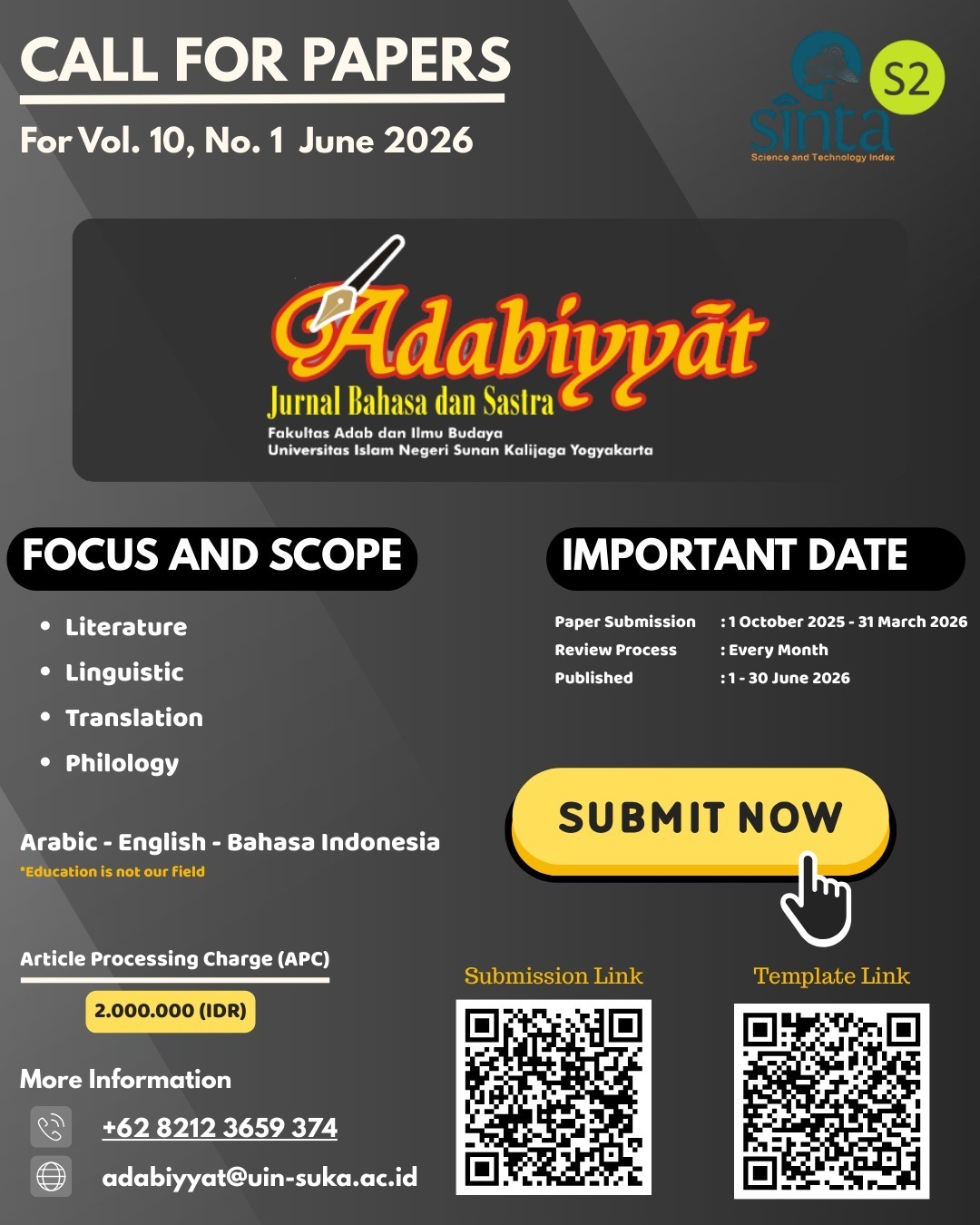COMPUTATIONAL LINGUISTICS (Model Baru Kajian Linguistik dalam Perspektif Komputer)
DOI:
https://doi.org/10.14421/ajbs.2010.09203Abstract
This paper describes a new discipline in applied linguistics studies, computational linguistics. It’s a new model of applied linguistics which is influenced by computer technology. Computational linguistics is a discipline straddling applied linguistics and computer science that is concerned with the computer processing of natural languages on all levels of linguistic description. Traditionally, computational linguistics was usually performed by computer scientists who had specialized in the application of computers to the processing of a natural language. Computational linguists often work as members of interdisciplinary teams, including linguists (specifically trained in linguistics), language experts (persons with some level of ability in the languages relevant to a given project), and computer scientists. The several areas of computational linguistics study encompasses such practical applications as speech recognition systems, speech synthesis, automated voice response systems, web search engines, text editors, grammar checking, text to speech, corpus linguistics, machine translation, text data mining, and others. This paper presents the definition of computational linguistics, relation between language and computer, and area of computational linguistics studies.
Downloads
References
Barr, Avron and Edward A. Feigenbaum. 1981. Handbook of Artificial Intelligence Volume 1, Stanford, Los Astos: Heuristech Press, William Kaufmann.
Bolshakov, Igor A. and Alexander Gelbukh. 2004. Computational Linguistics: Models, Resources, Applications. Mexico: Ciencia De La Computación.
Bussmann, Hadumod. 1996. Routledge Dictionary of Language and Linguistics. New York: Routledge.
Dong, Anda. 2009. The Language of Design, Theory and Computation. London: Springer-Verlag London Limited.
Gliozzo, Alfio and Carlo Strapparava. 2009. Semantic Domains in Computational Linguistics. Dordrecht; Heidelberg; London; New York: Springer.
Hausser, Roland. 2001. Foundations of Computational Linguistics: Human-Computer Communication in Natural Language. Berlin; Heidelberg; New York; Barcelona; Hong Kong: Springer.
Jurafsky, Daniel and James H. Martin. 2000. Speech and Language Processing: An Introduction to Natural Language Processing, Computational Linguistics and Speech Recognition. New Jersey: Prentice Hall, Englewood Cliffs.
Mitkov, Ruslan. 2004. The Oxford Handbook of Computational Linguistics. Oxfor: Oxford University Press.
Reghizzi, Stefano Crespi. 2009. Formal Languages and Compilation. London: Springer.
Richards, Jack C. and Richard Schmidt. 2002. Longman Dictionary of Language Teaching and Applied Linguistics. Edinburgh: Pearson.
Sproat, Richard, Christer Samuelsson, Jennifer Chu-Carroll, and Bob Carpenter. "Computational Linguistics" dalam Mark
Aronoff and Janie Rees-Miller. 2003. Handbooks of Linguistics, USA: Blackwell Publishing.
Vogel, Carl (Dir.). 2006. Computer Science, Linguistics and a Language: Course Handbook 2006–2007. Dublin: University of Dublin.
Walter, Elizabeth. 2008. Cambridge Advanced Learner's Dictionary. Cambridge: Cambridge University Press, versi CD, edisi ke-3.
Downloads
Published
Issue
Section
License
- Adabiyyāt: Jurnal Bahasa dan Sastra publishes all articles entirely in full text.
- It is permissible for readers to download and to use it for scientific purposes and scientific dissemination.
- The author can re-publish the article that has been published by the Adabiyyāt: Jurnal Bahasa dan Sastra after obtaining written permission from the editor. This letter can be obtained by submitting a request letter for permission to republish the article to Adabiyyāt: Jurnal Bahasa dan Sastra via email adabiyyat@uin-suka.ac.id. In the second publication, the author is required to include information that the article was firstly published by the Adabiyyāt: Jurnal Bahasa dan Sastra.









